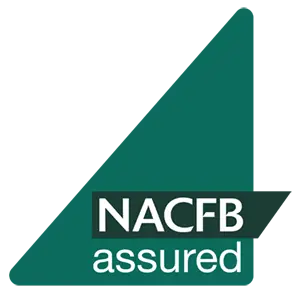In recent years, equity release has become an increasingly attractive option for homeowners looking to unlock the value in their properties. With improved rates and enhanced safeguards, it’s far from the daunting product it was in the 90s. We sat down with Kieran Hayes, Director at Hayes Finance, to discuss why equity release is gaining popularity and what potential clients should know about this financial solution.
Q: Kieran, can you explain why equity release is becoming such a popular solution for homeowners?
Kieran: There are a few key reasons for this. First, interest rates for equity release have significantly improved. After the uncertainty following the mini-budget under Liz Truss, where rates soared to 7-8%, we’re now seeing rates come back down to around 5.2%. This makes equity release a far more affordable option than it has been in the past.

Additionally, people are living longer and, as a result, often need to fund longer periods of retirement or increased care costs. Equity release allows homeowners to access the wealth tied up in their homes without having to downsize or sell, which is particularly beneficial for those who want to stay in their homes as they age.
Q: What safeguards are in place now to protect clients that weren’t available in the 90s?
Kieran: One of the major changes since the 90s is the level of regulation in the equity release market. Back then, there were stories of elderly people losing their homes due to negative equity. Today, however, the Equity Release Council (ERC) has strict guidelines in place to prevent such issues. All lenders who are members of the ERC must adhere to these guidelines, which include a no-negative-equity guarantee. This ensures that clients will never owe more than the value of their home.
On top of that, the sales process itself is highly regulated. Advisors like us follow a rigorous checklist to ensure that equity release is the right option for each client. We always explore alternatives, like downsizing or traditional mortgages, before proceeding with equity release, and we make sure that family members are involved to safeguard vulnerable clients.

Q: Can you give some examples of why someone might consider equity release?
Kieran: Absolutely. There are several scenarios where equity release can be beneficial. Here are a few common reasons people consider it:
- Covering care costs – As in the case of one of our recent clients, a 95-year-old homeowner who needed funds to cover her care expenses. Equity release allowed her to stay in her home while securing the necessary funds. You can read her full case study [here].
- Home improvements – Many clients use equity release to adapt their homes as they age, installing features like stairlifts or ground-floor bathrooms to improve accessibility.
- Paying off existing debts – Equity release can be a lifeline for older homeowners who are still carrying a mortgage or other debt. It helps reduce monthly outgoings while allowing them to stay in their home.
- Helping family members – Some parents or grandparents use equity release to gift money to their children or grandchildren, helping them with deposits for their own homes or other financial needs.
- Supplementing retirement income – With the cost of living rising and pension pots often not stretching as far as people hoped, equity release provides a way to boost retirement income without having to sell the family home.
Q: You mentioned earlier that interest rates are improving. How does that affect equity release?
Kieran: Improved interest rates make equity release a more cost-effective option for homeowners. The lower the interest rate, the slower the loan grows over time. For clients who don’t make monthly repayments, compound interest can increase the size of the loan, but with today’s lower rates, that growth is much more manageable.
What’s also important to note is that if interest rates drop further after a client secures an equity release deal, we can often rebook them at the lower rate. This flexibility allows clients to take advantage of better rates down the line if the market improves.
Q: What should people look out for when considering equity release?
Kieran: Equity release isn’t for everyone, and it’s vital that clients understand both the pros and cons. Some key considerations include:
- Compound interest: If you don’t make monthly payments, the interest is added to the loan, and this can grow over time. That said, some clients opt to make voluntary payments to manage this.
- Impact on inheritance: Releasing equity reduces the value of the estate that can be passed on to beneficiaries. It’s important for families to have open conversations about this.
- Long-term planning: Equity release should be viewed as part of a broader financial plan, especially if there are future care needs to consider.
For anyone considering this option, I always recommend speaking with an advisor who is part of the Equity Release Council, as they will follow the guidelines designed to protect clients. We recently covered more on the checks and safeguards in place in Safeguarding Vulnerable Clients: How Hayes Finance Prioritises Care in Equity Release, where we’ll dive into the process and why it’s so important to the team here at Hayes Finance.
If you’re interested in learning more about how equity release could benefit you or a loved one, reach out to us for a chat. We’re here to guide you through the process and help you make the right financial decisions for your future. For more details, check out our recent case study on how we helped a 95-year-old client fund her care needs while staying in her beloved home.




